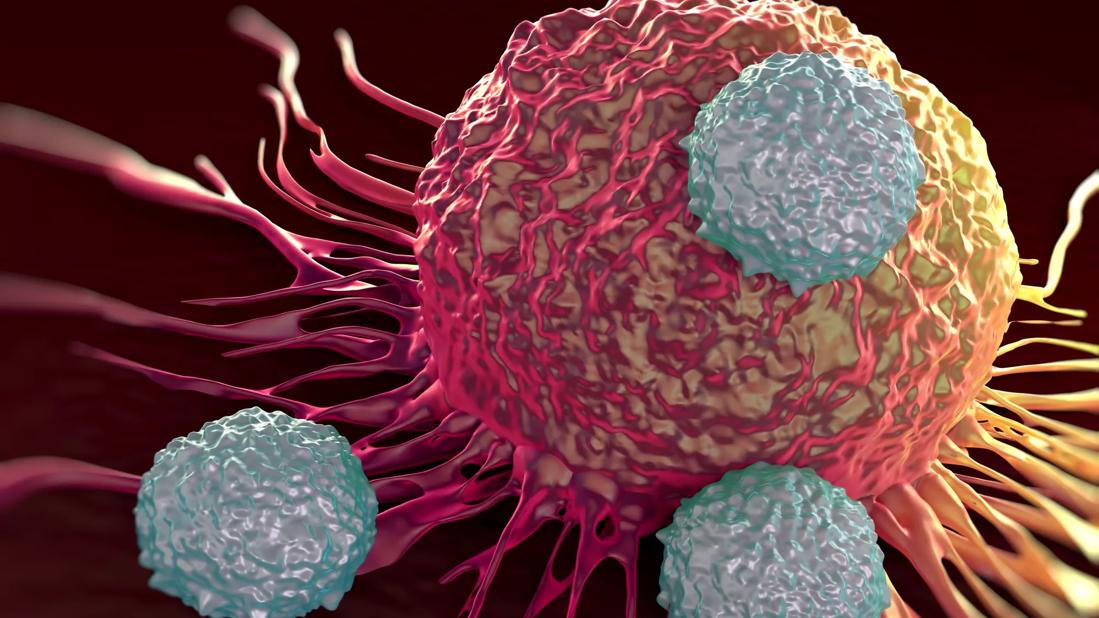Q&A explores what makes our defenses fail

Image content: This image is available to view online.
View image online (https://assets.clevelandclinic.org/transform/cbbb3492-15e4-4bc1-a244-607f8c460a93/ImmuneSystemAttackingCancerCell-1_jpg)
Is Your Immune System Unhealthy? How to Tell
Your immune system is a fascinating, interconnected network. It protects you from millions of harmful bacteria, microbes, viruses, toxins and parasites, yet most people often don’t give it a second thought.
Advertisement
Cleveland Clinic is a non-profit academic medical center. Advertising on our site helps support our mission. We do not endorse non-Cleveland Clinic products or services. Policy
At the break of skin and the openings of your mouth and nose, it is the border patrol. If invaders do get inside your body, it sends out lines of defense, whether in the blood, organs, muscles or bones.
This internal police force is vital to life, though sometimes it does get overzealous. When this happens, the immune system can work against us, causing allergic reactions or at its worst, autoimmune disorders, such as lupus and multiple sclerosis.
At other times, it weakens, fails and becomes ineffective.
Why does this happen? What turns the volume of your immune system up or down?
Rheumatologist Leonard Calabrese, DO, answers common questions about what happens when your immune system falters.
A: Think of how many times you come into contact with someone who has a cold or the flu. Imagine how often your immune system fights off those germs and keeps you in the pink. But what if, instead, every one of those illnesses gained a foothold in your body? You might go from one illness to another, without ever recovering in between.
When the failure is severe, you will see more complications from those illnesses and infections, and you’ll recover much more slowly. Instead of bouncing back within days or a week, you could suffer for several weeks or months.
Advertisement
When your immune system fails completely, you’re left without any natural protection against illness. This leaves you open to “opportunistic infections” — sicknesses that can even come from things that ordinarily wouldn’t harm you. These can include recurrent pneumonia, herpes simplex and tuberculosis among other infections.
People who are immunocompromised, such as those with HIV, fall into this last group. This makes certain types of cancer, such as lymphoma, more likely.
A: In many cases, an immune system that overreacts is as harmful and dangerous as one that stops working.
In general, an overactive immune system leads to many autoimmune disorders — because of hyperactive immune responses your body can’t tell the difference between your healthy, normal cells and invaders. In essence, your immune system turns against you.
A: Common conditions caused by an overactive immune system include:
Other autoimmune conditions include:
A: Doctors still don’t know exactly why the immune system sometimes fails. But, there are clues to how it happens. The immune system is an integrated network that’s hard-wired into your central nervous system, Dr. Calabrese says. So, when it’s healthy, everything works automatically.
But, things go haywire when the system starts to crumble. For example, if you don’t sleep well and get stressed out, your body will produce more of the stress hormone cortisol.
Over time, high cortisol levels can have a degenerative effect on your body. Healthy bone and muscle break down and slow the healing process. Cortisol can interfere with digestion and metabolism, as well as adversely affecting your mental functions.
A: Though we don’t always know exactly why an immune system fails, we do know that adopting healthy habits can help keep your immune system ticking along well and always ready for defensive action, Dr. Calabrese says.
Advertisement
A healthy diet, regular exercise, getting enough sleep and managing stress all can help. These steps help support good cardiovascular health, which, in turn, contributes to a healthy immune system.
Advertisement

Delivered every Tuesday!
Sign up for our Health Essentials emails for expert guidance on nutrition, fitness, sleep, skin care and more
Learn more about our editorial process.
Advertisement
Options like fatty fish, citrus fruits and almonds can help keep you well and heal you faster
Eat the right foods, and get plenty of sleep and exercise
Common sense steps can give your child a healthy start
Understanding how it works can help you stay healthy
The supplement shouldn’t replace a healthy diet, but it can help you get in your fruits and veggies
This spicy concoction can do more harm than good, upsetting your stomach and causing painful acid reflux
From nausea, weight gain and eczema, stress can affect your immune system in many ways
Milk thistle research is limited, but shows promise for liver health, diabetes and more
Type 2 diabetes isn’t inevitable with these dietary changes
Applying a hot or cold compress can help with pain
Pump up your iron intake with foods like tuna, tofu and turkey